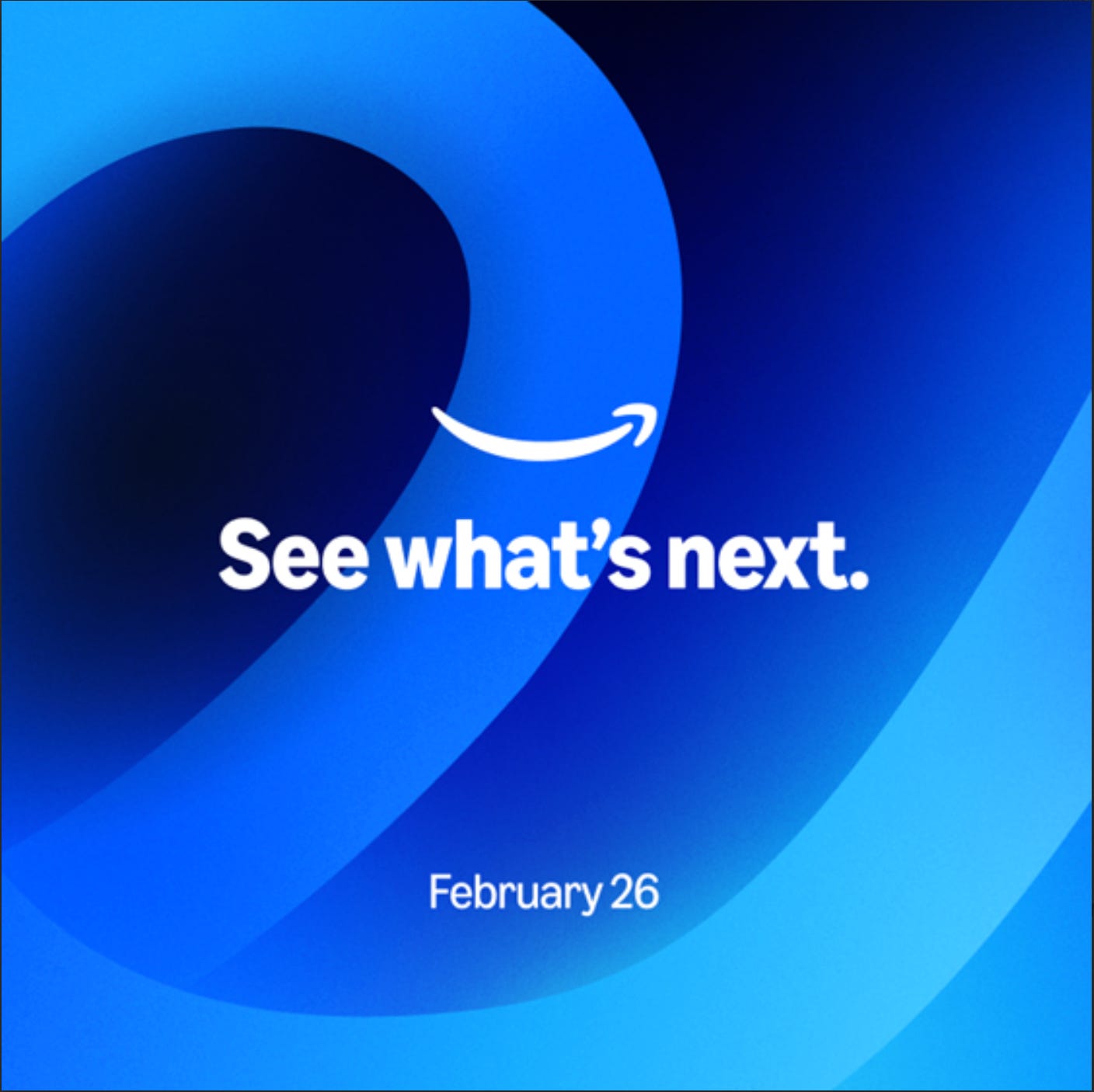To hear the related 5-minute audio file that I uploaded today as my Morning Journal flash briefing for Alexa devices, please click on the play button:
AI + Alexa = Huge Opportunity + Big Risk
I remember it like it was 522 days ago.
Dave Limp, head of Amazon’s devices and services, took the stage with an Echo Show and said, “Alexa, let’s chat.”
After what seemed like an eternity but was probably only a few seconds, Amazon’s miracle assistant replied, “Hi there, how can I help you?”
Limp, who now heads Blue Origin, Jeff Bezos’s rocket company, seemed relieved to have the conversation under way.
“How’s my favorite football team doing?” he asked. Twice.
At that media event in Alexandria, VA, held less than a year after ChatGPT changed everything, Limp announced that generative AI would be coming to Alexa early in 2024.
That didn’t happen.
By all accounts, the task of bringing safe, conversational AI to the half-billion Alexa devices has turned out to be way more difficult that expected.
On Wednesday in New York City, I will have a chance to see the result.
Panos Panay, the new head of devices and services, will preside over an hour-long presentation about Alexa. Afterward, there will be demonstrations of the specifics. If this event runs true to form, the media will be able to try the Alexa devices ourselves.
None of this information will be embargoed, so you will see news arriving by noon on Wednesday, as the early birds file their stories and video clips from the briefing venue in Tribeca.
The Kindle Chronicles staff will upload a special episode of the podcast Wednesday night or early Thursday morning.
I have high hopes for Remarkable Alexa or Banyan or whatever Amazon ends up naming the new assistant/agent/persona who will have access to all of the talking devices in my home.
This will be the first big overhaul of Alexa since her introduction in 2014. If Amazon gets it right, those hundreds of millions of devices could soon be as smart as my soon-to-be-discontinued AI Pin or any of the AI bots hidden on smartphones stuffed in our pockets or purses.
No need to break stride in the kitchen or activate a gadget. Just talk:
“Alexa, book me a non-stop ticket from RSW to LaGuardia on February 25.”
“Alexa, I’d like my personally designed newsfeed now.”
“Alexa, explain quantum computing principles to me as if I’m a high school student, focusing on superposition and entanglement.”
That last one is on my list of test prompts that I gathered from ChatGPT, Grok, and Claude. I hope I will have enough demo time to try some of them and see how well the new Alexa handles them.
The opportunity here is obvious.
Smart Alexa will likely cost $5 or $10 a month—new revenue for Amazon from a now-unprofitable platform. And if the new version can avoid creepy hallucinations like turning on a bathtub instead of the hallway light, adoption will be fast and deep.
The risk is also evident.
How fast will New Alexa reply to questions? How smart will her answers be? Will she be able to act like an agent, like OpenAI’s pricey new Operator version of ChatGPT?
What will the reviews on Wednesday be like? If they are terrible, it could take a long time to recover, no matter how enthusiastic customers become.
If Alexa fails to graduate from being a box that tells us what the weather is and how much time is left on the rice timer, then all those hundreds of millions of Echo Shows could eventually fade into irrelevance.
My guess is that this is going to be a big winner for Amazon—a Kindle, not a Fire Phone.
Here’s hoping.




I, too, hope this will make Alexa relevant for the coming years, as I hardly speak with her now.